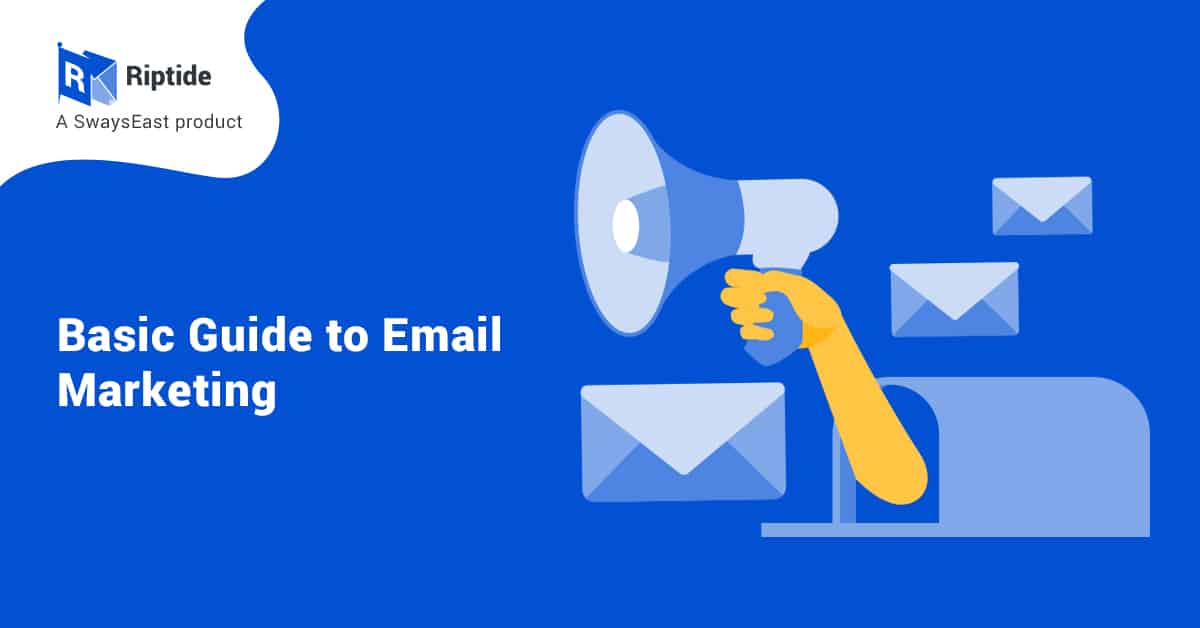Thanks to email marketing, individuals and organizations can do wonders. When utilized properly, this marketing channel helps create and nurture lasting, profitable relationships between businesses and customers.
Fast Facts about Email Marketing
- In 1978, the first marketing email was sent which resulted in over $10 million in sales of computer hardware.
- There are almost 4 billion daily email users in 2020 with almost 6 billion active email accounts.
- Consumers spend 5 hours a day on mobile devices with 85% of users relying on smartphones to access email.
- An estimated 360 million daily emails will be sent by 2024.
- Checking email is the first thing in the morning that 58% of adults do.
- In 2019, email ad expenditures reached an estimated $350 million.
- Email marketing delivers $52 worth of ROI for every dollar spent.
- Over 40% of B2B marketers consider email newsletters an integral part of marketing success.
- Email marketing is preferred by 87% of B2B marketers for lead generation.
- When it comes to customer acquisition, email marketing is 40 times more effective than all other social media platforms combined.
- Email marketing is a vital aspect in customer retention, according to 80% of business professionals.
- At least 70% of consumers agree that email is their top choice among available marketing channels.
- Conversion rates skyrocket to 300% when there’s video content in email marketing as long as it doesn’t go beyond the two-minute mark for high engagement rates.
- Abandonment email campaigns lead to 6.33% conversion rate when sent an hour after a customer’s shopping session.
- Email segmentation in marketing strategy results in a staggering 760% revenue increase.
Email Marketing Defined
Email marketing is the use of email to promote business products and services to a target audience. This is a direct, effective, and powerful digital marketing strategy that establishes a connection with prospects and turns one-time buyers into loyal customers.
Email automation is a way to create and send personalized or tailored content to prospects and customers based on defined metrics and targeted schedules. Automated email scheduling enables reaching the right people, concentrating on the right message, and communicating at the right moment.
Benefits of Email Marketing
- Cost Effective
An email marketing campaign only requires a basic strategy that complements current brand vision and an affordable email tracking tool to execute plans and measure performance. - Full Control
Your digital marketers have full control over every aspect of an email campaign to reflect brand identity, stand out among competitors, and bring better business results. You hold the rights to all content materials, making email your most valuable online marketing asset. - Ease of Use
Through built-in design features and intuitive editing capabilities of email marketing software, it is easy to create custom-built email marketing campaigns that can be fully automated. - Measurable
Through a high-quality email tracking tool, there is speed and accuracy for evaluating the effectiveness of email marketing campaigns. Information is usually available from a comprehensive dashboard, providing a clear picture of results for specific emails. - Excellent ROI
The abovementioned statistics prove that email marketing converts better and brings the highest return on investment of all online marketing channels. If you run and measure an email marketing campaign the right way, there is assurance of continuous revenue flow for your business.
Steps to a Successful Email Marketing Strategy
- Define target audience: Identify your buyer personas and customize your email campaign based on their wants, needs, and expectations.
- Establish goals: Determine what you want to accomplish with a specific email marketing strategy as this will dictate content type, recipients, benchmarks for success, etc.
- Build email list: This can be done by importing existing customer details or building your list from scratch.
- Choose an email campaign type: The goals you want to achieve will determine the email campaign type you will create.
- Create first email campaign: Structure email campaign for easy reading – with minimal text, compelling visuals, and highly relevant to readers’ interests.
- Make a schedule: Decide on when and how often to send emails to your contacts and be consistent in doing so.
- Test email campaign: Send a test email to other people in your team for an honest review of overall format and tone before sending off to intended recipients.
- Measure results: There are key email metrics to track and measure that will provide valuable insight on the health and success of your specific email campaign.
Email marketing campaigns provides valuable data on customers, competitors, and the future of your business. Do you need help tracking your email marketing performance? Get started today.


